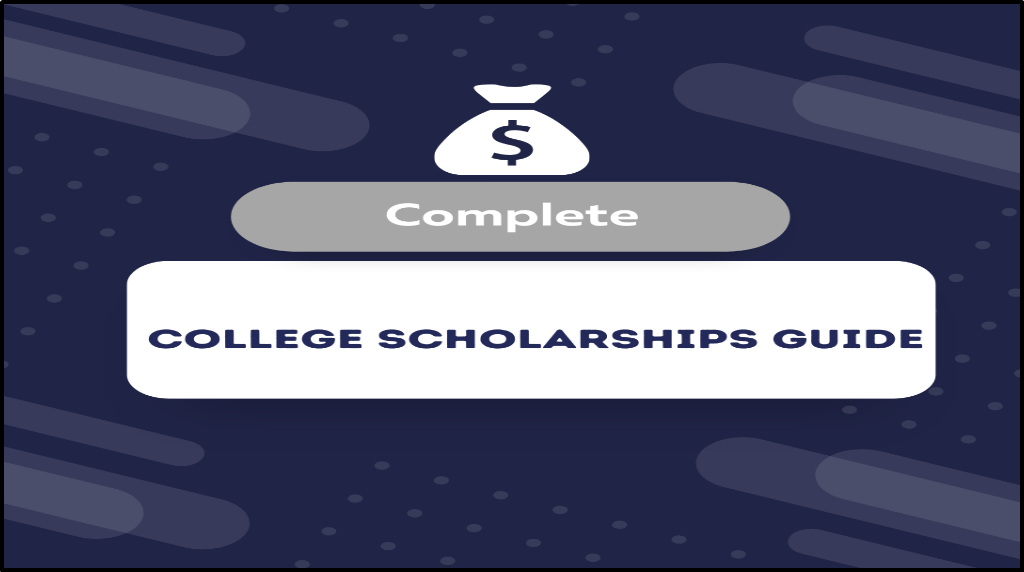College is expensive, right? And College Scholarships can be a game-changer. With tuition fees rising and student debt becoming a massive burden, scholarships offer a golden ticket to students worldwide. This guide dives into the nitty-gritty of scholarships, making sure you’re fully prepped to snag some serious funding in 2024.
Understanding Scholarships
What Are Scholarships?
Simply put, scholarships are financial awards given to students to help cover the cost of their education. Unlike loans, scholarships don’t need to be repaid, making them a fantastic way to fund your studies without ending up in debt.
Types of Scholarships
Scholarships come in various shapes and sizes. Here are the main types:
- Merit-Based Scholarships: Awarded for academic, athletic, or artistic achievements.
- Need-Based Scholarships: Given to students based on financial need.
- Demographic Scholarships: Targeted at specific groups, such as minorities or women.
- Field-Specific Scholarships: For students pursuing particular fields of study, like STEM or the arts.
Preparing for Scholarships
Early Preparation Tips
The early bird catches the worm, especially when it comes to scholarships. Start researching and preparing as early as your sophomore year of high school. Keep your grades up, get involved in extracurricular activities, and start building relationships with teachers and mentors who can write recommendations for you.
Essential Documents
You’ll need several documents for your scholarship applications:
- Transcripts
- Letters of recommendation
- Personal statement or essay
- Financial information (for need-based scholarships)
- Proof of identity and citizenship
Finding Scholarships
Online Resources
The internet is your best friend when hunting for scholarships. Websites like Fastweb, Scholarships.com, and the College Board offer extensive databases of scholarship opportunities.
School and Community Resources
Don’t overlook your school’s guidance office or local community organizations. Many local scholarships are less competitive because fewer people apply for them.
Scholarship Search Engines
Use scholarship search engines to filter opportunities based on your background, interests, and needs. These tools save time and help you find scholarships that fit you perfectly.
Popular Scholarships in 2024
National Merit Scholarship
This prestigious scholarship is based on PSAT/NMSQT scores and offers significant financial awards to high-achieving students.
Gates Millennium Scholars Program
Funded by the Bill and Melinda Gates Foundation, this program provides full scholarships to outstanding minority students.
Coca-Cola Scholars Program
A highly competitive scholarship that rewards academic excellence and community involvement.
Scholarships for Specific Demographics
Scholarships for Minorities
Programs like the United Negro College Fund (UNCF) and Hispanic Scholarship Fund (HSF) offer numerous opportunities for minority students.
Scholarships for Women
Organizations like the American Association of University Women (AAUW) provide scholarships to encourage women’s education and leadership.
Scholarships for International Students
Many universities offer scholarships specifically for international students, making studying abroad more accessible.
Field-Specific Scholarships
STEM Scholarships
With the growing demand for STEM professionals, many organizations offer scholarships to students pursuing science, technology, engineering, and math degrees.
Arts and Humanities Scholarships
Students in the arts and humanities can find scholarships from institutions like the National Endowment for the Arts and various private foundations.
Business and Economics Scholarships
Business schools and corporations often offer scholarships to students studying business and economics.
Application Process
How to Apply for Scholarships
Applying for scholarships can be a lengthy process, but it’s worth it. Follow these steps:
- Research and find scholarships.
- Gather necessary documents.
- Write a compelling essay.
- Obtain strong letters of recommendation.
- Submit your applications before deadlines.
Common Application Requirements
Most scholarships require:
- Completed application form
- Academic transcripts
- Personal statement or essay
- Letters of recommendation
- Financial information (if applicable)
Tips for a Successful Application
- Start early.
- Follow instructions carefully.
- Tailor your application to each scholarship.
- Proofread your application before submitting.
Writing a Winning Scholarship Essay
Importance of the Essay
Your essay is your chance to shine and tell your story. It can make or break your application, so take it seriously.
Crafting a Compelling Story
Write about your passions, challenges, and achievements. Be authentic and let your personality come through. Show the scholarship committee why you deserve the award.
Do’s and Don’ts
- Do: Be honest, concise, and specific.
- Don’t: Use clichés, lie, or recycle the same essay for every application.
Letters of Recommendation
Who to Ask
Ask teachers, mentors, or employers who know you well and can speak to your strengths and achievements.
How to Ask
Be polite and give them plenty of time. Provide them with information about the scholarship and why you are applying.
Importance of Strong Recommendations
Strong letters of recommendation can provide a powerful endorsement of your abilities and character, significantly boosting your application.
Scholarship Interviews
What to Expect
Interviews can be nerve-wracking, but they’re also an opportunity to stand out. Expect questions about your background, goals, and why you deserve the scholarship.
Preparing for the Interview
Practice common interview questions, dress appropriately, and be punctual. Research the scholarship and the organization offering it.
Common Interview Questions
- Why do you deserve this scholarship?
- What are your career goals?
- How will this scholarship help you achieve your goals?
Managing Scholarship Money
Understanding Scholarship Stipulations
Read the fine print. Some scholarships have conditions like maintaining a certain GPA or participating in specific activities.
Budgeting and Financial Planning
Create a budget to manage your scholarship money wisely. Plan for tuition, books, living expenses, and other costs.
Maintaining Scholarships
GPA Requirements
Many scholarships require you to maintain a certain GPA. Stay on top of your studies to keep your scholarship.
Community Service and Involvement
Some scholarships require you to participate in community service or campus activities. Get involved and make a positive impact.
Renewing Scholarships
If your scholarship is renewable, be sure to meet all the requirements and reapply on time.
Alternatives to Scholarships
Grants
Grants, like scholarships, do not need to be repaid and are often based on financial need.
Work-Study Programs
These programs allow you to work part-time while attending school, helping you earn money to pay for your education.
Student Loans
Loans should be a last resort, as they need to be repaid with interest. However, they can be a valuable resource if used wisely.
Conclusion
Scholarships are a fantastic way to fund your education without piling up debt. Start early, be thorough in your applications, and don’t get discouraged if you don’t win every scholarship you apply for. Keep trying, and eventually, your hard work will pay off.
FAQs
- What is the best time to start applying for scholarships?
- Start researching and applying for scholarships as early as your sophomore year of high school.
- Can international students apply for scholarships in the US?
- Yes, many scholarships are available specifically for international students.
- What if I miss a scholarship deadline?
- If you miss a deadline, you’ll need to wait for the next application cycle. Always try to submit your applications well before the deadlines.
- How many scholarships should I apply for?
- Apply for as many scholarships as you are eligible for. The more you apply, the higher your chances of winning.
- Do I have to pay taxes on my scholarship money?
- Generally, scholarships used for tuition and course-related expenses are not taxable. However, any amount used for room and board or other expenses might be taxable. Check with a tax advisor for specific guidance.

